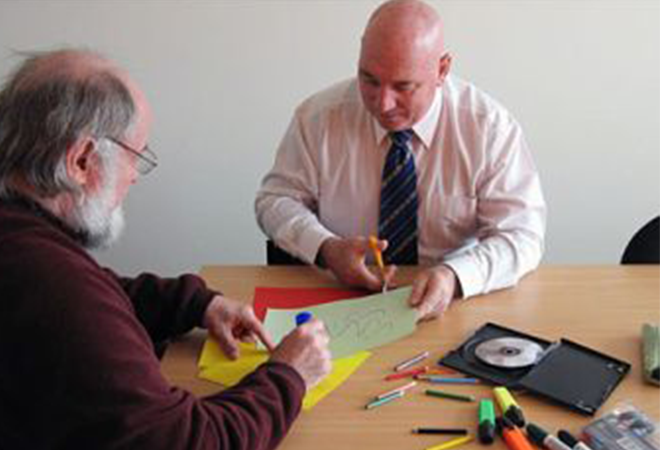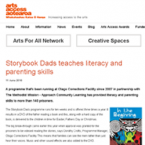
Making a difference in prison with Storybook Dads
Status
Completed: 30 June 2011
Project Details
A project completed in 2011, undertaken by The Methodist Mission, to use the Storybook Dads approach to increase literacy amongst male prisoners and enhance their family or whānau relationships whilst in prison.
Aims:
The main aims of the project were to:
- increase literacy amongst male prisoners through the Storybook Dads programme
- raise the literacy and personal skills of male prisoners through providing opportunities to engage in meaningful parenting tasks for their children whilst in prison.
Methodology:
The project used a mixed method approach, both qualitative and quantitative, that included:
- collecting literacy data on the TEC progressions for the prisoners who completed the Storybook Dads programme
- interviews with past participants of the programme, family and whānau members, and the programme tutors.
Team

Charles Pearce
Project co-leader
The Methodist Mission
Alexandra Fusco
The Methodist MissionStatus
Funding
$2,812.50 (excl GST)
Key Findings
The key findings from the project included:
- The men read a favourite children’s book, and this is recorded with pictures onto a DVD to go home to their children. The process involves the selection of an appropriate story, and reading and articulation skills, which include character, voices, phrasing, and creating an atmosphere where children will want to join in. It also involves storyboarding skills, where the way the story will be told is set out on paper and includes any extras such as background music, sound effects, and special messages the men may want to give. Included in this process is the making of a card to go with the DVD. All this not only improves literacy skills, but also further develops parenting skills, appropriate language and behaviour, and the opportunity to be a father within the confines of the prison walls.
- The literacy levels of the men were measured against the TEC literacy progressions. The first recording the men made is analysed and their literacy is matched against the literacy progressions. The final recording was also analysed and matched against the literacy progressions. This showed clearly the literacy gains made by each individual. The strand used is the ‘Read with Understanding’, which includes the measuring of language and text features, decoding skills, and vocabulary skills. The data gathered showed that a significantly high percentage of the prisoners made literacy gains of at least one step as measured against these progressions: 92% made gains in the language and text features strand; 97% made gains in decoding; and 89% made gains in their vocabulary development.
- The programme also had social benefits. The stories also encouraged the men to talk about their own childhood and their expectations and hopes for their children – that they wouldn’t make the “stupid choices” their fathers had made. These spontaneous conversations would occur around the table with the tutors as part of the group. The men would often ask what the tutors would say to their own children if certain behaviour or events happened, how the tutors would deal with something. These conversations provided chances to explore the role-modelling aspect of parenting and the way language can be used as power.
- Within the space created by this course the men were able to talk about their children and use endearments without feeling silly. Anecdotal evidence was also collected from the men who received feedback from their families on how the DVD was received. The men were very proud of what they achieved; the end product is a very tangible result of their time, energy and effort throughout the 10 weeks of the programme. At the end of the programme, there is recognition from the men that they have developed the skills to be able to read in a fun way to their children.
Key Recommendations
The key recommendations from the project included:
Chance to participate in a ‘normal’ parental interaction | Storybook Dads gives prisoners a chance to participate in what many consider a ‘normal’ parental interaction. The men get the chance to make something for their children that most fathers never do, and they realise this. They understand that they what they are sending home is much more than a card and a DVD, it is a representation of love and the fact that parenting doesn’t stop just because they aren’t there.
The literacy value of the programme | The measurement of the literacy gains made by the men using the TEC Literacy Progressions clearly shows the literacy value of the programme. The men themselves complete a formal evaluation of the programme to identify areas they enjoyed and areas they felt could be improved. Almost without exception, the feedback is positive, and the men often comment and are thankful for the opportunity to be a father, to think about their children and families, and to have the opportunity to create something special for their children.
A guide prepared by Charles Pearce and Alexandra Fusco.
(PDF, 203KB, 7-pages).
- 30 June 2011


